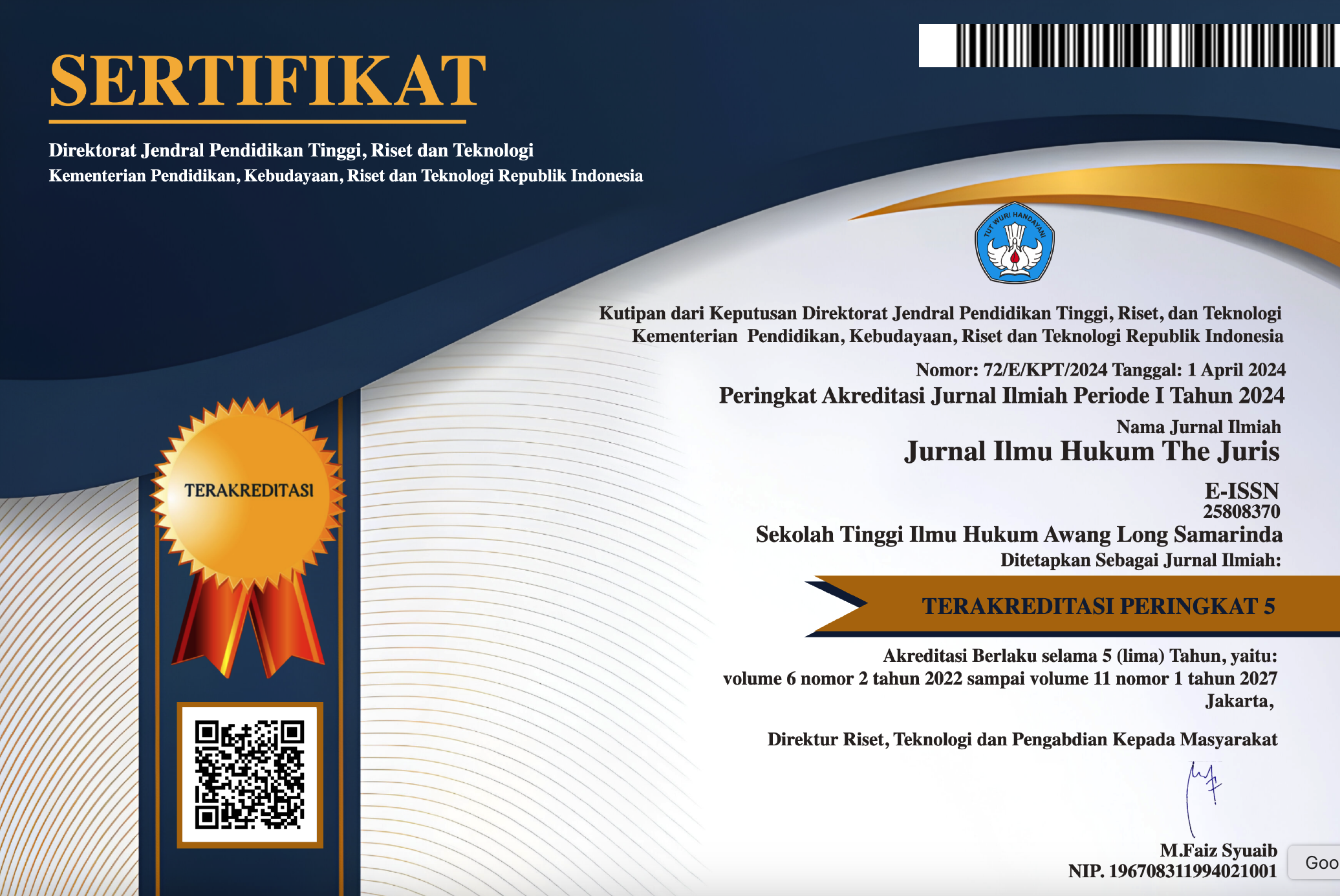PERLINDUNGAN HUKUM TERHADAP PENGGUNAAN UANG ELEKTRONIK PADA JALAN TOL (E-TOLL) DITINJAU DARI UNDANG-UNDANG NOMOR 8 TAHUN 1999 TENTANG PERLINDUNGAN KONSUMEN
Abstract
As an innovative and practical means of payment, electronic money is expected to facilitate the smooth payment of mass, fast, and micro economic activities, and its development will help smooth transactions in public transportation such as toll roads, trains, or other fields of public transportation. . Trade in mini markets, food courts or car parks. Given the importance of this role, the government conducts efficient and effective transportation operations by building toll roads that use electronic money cards (e- money) for payments. Consumers must use e-money cards for payment transactions, and this payment system also has a weakness, namely that consumers feel disadvantaged, namely they are not entitled to security in the event of loss and damage to the e-money card. This research is a normative legal research with a written method. Legal materials in this study include primary legal materials, secondary legal materials, and tertiary legal materials. The legal material analysis technique used in this research is to use descriptive techniques followed by evaluation. The findings and conclusions of this study indicate that the use of electronic money (E-Toll) on toll roads is often problematic, contrary to the Consumer Protection Act (UU No. 8 of 1999) which is certainly very detrimental to consumers. , Because the e-money card is an unregistered card, if the e-money card holder is lost or damaged, there is no legal protection. If the card is lost or damaged, the bank is not responsible for re-issuing it. E-money card, e-money card holder has no legal remedies for loss and damage due to a legal vacuum.
Downloads
Copyright (c) 2022 Muhammad Alfian Williandanu, Arikha Saputra

This work is licensed under a Creative Commons Attribution-ShareAlike 4.0 International License.







